Graham Reid | | 7 min read
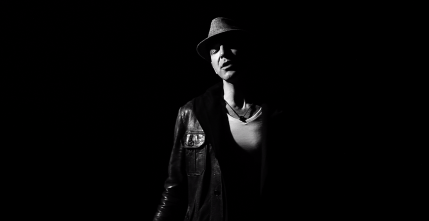
That late Sixties supergroup,
whose members came together with impeccable blues and jazz pedigrees, may have
been short-lived – just a little over two years until late '68 – but their
extended improvisations bridged the gap between blues-rock and psychedelic music.
After Cream split, Jack
Bruce's career became less high profile but he released numerous acclaimed solo
albums and worked with a roll call of jazz and rock luminaries.
A year after his death in
late 2014, aged 71, his son Malcolm organised a tribute concert for his father
– one of a few, all of which had stars in attendance – and the line-up included
drummers Ginger Baker and Billy Cobham, guitarist Steve Hackett (ex-Genesis)
and Mick Taylor (ex-Blues Breakers and Rolling Stones) and fellow Scot, singer
Lulu.
And like his father,
Malcolm's career has been diverse and not easy to pigeonhole.
Although he is coming to New
Zealand playing bass on a 50th anniversary tour paying tribute to the music of
Cream with Ginger's son Kofi on drums and Clapton's nephew Will Johns on guitar
(plus Glenn Hughes of Deep Purple and the great guitarist Robben Ford), Malcolm Bruce's career so far has embraced
everything from music for children through hard rock with Black Sabbath's Bill
Ward and Ozzy Osbourne, to studio sessions in Nashville with Little Richard and
now he's working on an opera about the blues singer Emanuel Dunn.
You have to ask how he came
upon that obscure bluesman.
“Actually, someone gave me a
book for Christmas, a series of interviews with Studs Terkel [And They All
Sang], the Chicago radio guy. I just read this interview with Emanuel and it
was such a moving story because he grew up with a white family in Louisiana and
they called him “Boy” and he didn’t have a name. His adopted father mistreated
him so badly, and eventually he escaped and taught himself to play music. It
just made an incredible story. So I’ve worked with a librettist and we are in
the middle of the script now.
“The way we are structuring
is not quite linear and his future self comes back to meet his younger self. I’m
very excited by it.”
So Malcolm Bruce is having quite
a career himself and aside, from the passing parade of inspirational musicians
through his home as a child, it all began at . . .
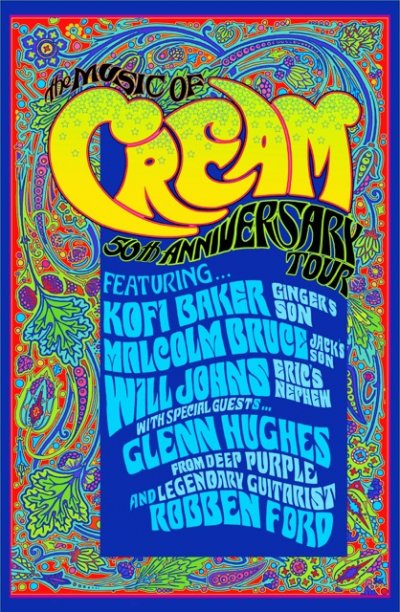 Guildhall in London when
you were a teenager? What did you study there?
Guildhall in London when
you were a teenager? What did you study there?
I studied piano and
composition. I've never studied bass funnily enough, it's something I pick up
and play. I'm actually a guitarist and pianist but kind of see myself as a
writer in the same way my Dad was. He was of course associated with bass as his
key instrument, but he would always just explore an idea and for me that's the
same, looking for a way to find something to express. I don't approach music as
a formulaic thing, each thing I do has to express something new.
So composition I studied, classical
composition, jazz and classical piano . . .
Let’s turn attention to the music of Cream that you
are bringing down this way. How would you describe this, is it a tribute to the
music, is an interpretation of that music?
Myself, Kofi and Will have
played this music together before and it has gone down very well. The way we
approach it is that we want to honour the music, what we are doing in using
that music is carrying on with what they were doing originally, because it is
open to interpretation and exploring where the music can take us.
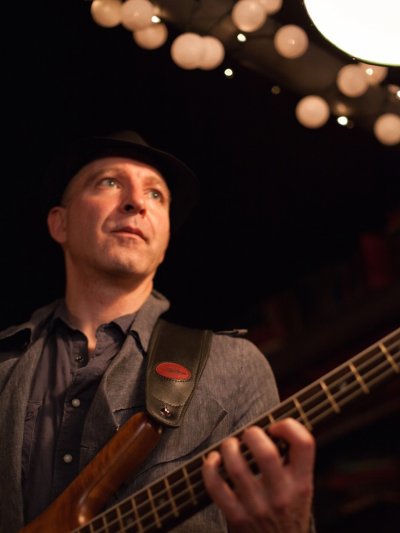 That is what is exciting
about it, and in fact what that music was truly about. There are tribute acts
and they are often awe-inspiring when they play the music exactly as it was,
but we are not doing that. We are not a tribute act but we are paying to
tribute to the music and honouring it as best we can.
That is what is exciting
about it, and in fact what that music was truly about. There are tribute acts
and they are often awe-inspiring when they play the music exactly as it was,
but we are not doing that. We are not a tribute act but we are paying to
tribute to the music and honouring it as best we can.
It’s music we know because we
grew up with these people and we do have an insight into the music and their personalities,
and I think we do a pretty good job on that front.
This is improvised music in
the same way that jazz is, so there is a song structure but you go off from
that into extemporisation and see where it takes you. Sometimes it takes you so
far that it changes your life.
It becomes a pure mode of
expression and that is very exciting experience for not just myself as a
musician but how you connect with the audience. It becomes a shared musical
journey and it can be something we all take with us.
I think that is something
that is missing in the music today, so it’s exciting to have this opportunity.
It is an idiom which was full of great potential but I
don’t hear a lot of that around today, which surprises me given it allows
people to put their own stamp on the music.
Yeah, I think the music
business has gone into a different direction and everyone has the idea they can
be a pop star, there’s brilliant talent out there . . . but I’m not sure if people have an
understanding what music can do in terms of it being something experientially.
Don’t get me wrong, I love
Britney Spears as much as the next man (laughs) and good pop, and there’s
something amazing about that. But there’s something different in acknowledging
a tradition.
 I think with Cream it was an
historical moment where the baby boomer generation did turn to the past but
looked into the future, and I don’t think that has happened again.
I think with Cream it was an
historical moment where the baby boomer generation did turn to the past but
looked into the future, and I don’t think that has happened again.
My Dad had that rich tapestry
of musical experience from classical music and jazz, and later he worked with
Fateh Ali Khan for example.
He had a very strong sense of
self in what he wanted to do, and it was the same with Ginger. It was
incredible what he achieved, sometimes in spite of himself!
I always think of Ginger as inventing
world music, not that I like that term, when he went off to Africa. I can think
of maybe people from Cambridge university or something going off there to do
field recordings, but that’s not a real encounter, unlike Ginger who played
with those people.
And Eric was a purer blues
artist and I have a total respect for him as a player, but something totally
magical happened with Cream where he exceeded whatever his limitations might
have been in the choices he made in his playing.
Jack helped propelled him to
achieve something that he hasn’t really ever done since.
I take what you say about
your father musical breadth because I always enjoyed those things he did on the
CMP label in the Eighties [with the likes of Clapton, Trilok Gurtu, Dave
Liebman and Bernie Worrell] but not many people know that. It seems to me though
you were drawn to rock and jazz, almost equally? Or was there one that you
preferred?
Not really, and I've actually
just done another album and I'm looking to set up an Australia/New Zealand tour
for own band later this year. The Cream thing is great and we love playing the
music but I'm also trying to develop as an artist and so we are doing these
things in tandem.
There are so many different
ways to express myself, whether it is free improvisation or in a jazz context
or rocking out on a couple of chords or writing an acoustic song or whatever. But
each thing requires a different sensibility.
Maybe I could be seen as a
dilettante and trying to get a finger in every pie but when I do something it
always sounds to me, like the natural context, and it sounds like Malcolm.
Well, nobody said Picasso
couldn't do sculpture because he was a painter. We express ourselves in all
kinds of ways.
Absolutely, and I think it's
more that the business of music has a certain expectation. There is the business
of marketing and all of that nonsense which is something I have fought against
in my career so far but I am also having to come to terms with it, those matters
of branding.
It is a balancing act.
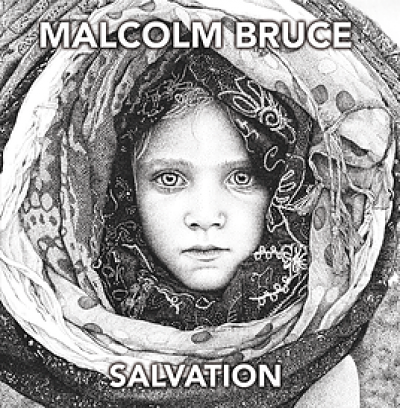 This new album you've just done, is that the one
you've recorded in Nashville?
This new album you've just done, is that the one
you've recorded in Nashville?
Yes, I started it in
Nashville but then ended up going off on tour with another band featuring Joe
Satriani. That took me away from the project so I ended up doing a crowdfunding
campaign and just finished it a couple of months ago with a guy called Steve
Orchard who is Paul McCartney's engineer. So the album is literally hot off the
press and we are doing vinyl too.
You recorded in Nashville so are we talking an album
along the singer-songwriter vein?
I don't know if I could say
that, it's quite heavy in places but it’s song-based but not blues-rock. Just
my own songs, a lot of it is talking about a relationship I had which had a
deep effect on me so it's quite a personal record in that way. Music of the
heart and I’m growing all the time so I’m planning to do a second record this
summer, quickly this time, to prove to myself I can do it that way. It has a
real band dynamic.
You curated the Evening for Jack. How did that go, the
expectations would have been incredibly high on the part of the audience. Was
it a success in your terms?
I think to some degree it
was. We got through it. It was an epic task and I would have liked to have a
few more artists from everybody who worked with Jack, but we had a great
line-up.
But when you’ve got 30 or 40
musicians flying in from all over the world and putting them up in hotels . . .
It would have been nice to have had three weeks of rehearsals but . . .
Overall there were amazing
moments, Having Dennis Chambers there was amazing, and Mick Taylor . . . and Lulu was just amazing. We filmed it
and there could be an hour-long highlights documentary.
Overall it was great to do, to honour my Dad in the best way we could, and we got through it.
Jack Bruce was interviewed at Elsewhere here. There is a considerable amount about Eric Clapton starting here, and a Cream compilation is suggested here.
THE MUSIC OF CREAM TOUR DATES
May 31, Wellington Opera House
June 1, Christchurch, Isaac
Theatre Royal
June 2, Auckland, ASB Theatre


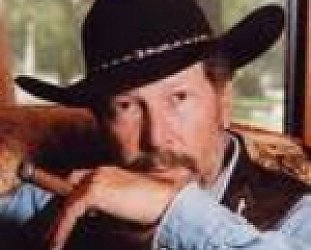
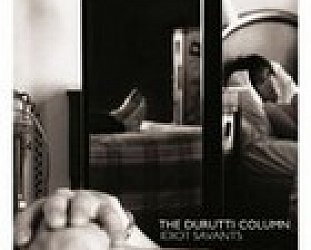

post a comment